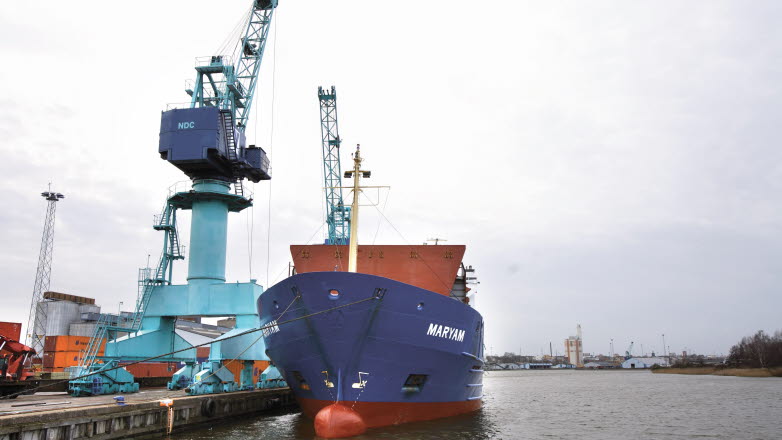Shipping and ports key to a circular economy

Swedish shipping will be able to play a much greater role in transporting products and materials for recycling and reuse in the future. And ports can add value to the circular logistics solutions of the future in a number of ways. These are the findings of a VTI research project has now been completed.
In simple terms, “circular economy” means recycling and reusing products and materials instead of consuming and discarding them, as in a traditional linear economy. A shift towards circular solutions is often deemed necessary as a way of reducing climate impact and economising on the Earth’s resources more effectively.
In their report entitled Svenska hamnars roll i en cirkulär ekonomi (SHREK, The Role of Swedish Ports in a Circular Economy), researchers at VTI and RISE examine the potential importance of ports and shipping in the circular economy of the future. The project was implemented in collaboration with the Port of Norrköping, the Ports of Halland, the Port of Trelleborg, the Port of Oslo, Ragn-Sells, Kretslopp och vatten i Göteborg stad and Avfall Sverige.
One challenge for circular products and materials is that the material value is typically low, and so the logistics need to be sustainable and cost-effective if they are to compete with new products and virgin materials.
“This makes logistics particularly important when it comes to achieving greater circularity of products and materials. Our research shows that shipping has the potential to match the needs of an increased circular economy, and that ports have a key role to play,” says Linea Kjellsdotter Ivert, project manager and initiator of the study.
The ports contribute to circular solutions in at least two main areas. Firstly, ports are able to store and handle products and materials efficiently and act as logistics nodes for transshipment between different modes of transport. And secondly, they can act as knowledge brokers and help waste contractors – for instance – with coordination, forging contacts and suggestions for efficient logistics solutions.
As regards the role of shipping, the researchers used a case study to calculate the environmental impact of transporting flat glass collected from construction projects in Sweden to a production facility manufacturing new flat glass in Germany, with different alternative locations for a sorting machine. In all cases, the environmental impact of maritime transport was found to be significantly less than that of lorries.
Another case study shows that shipping can also be most advantageous in economic terms. When Ragn-Sells was transporting lime-stabilised clay from Gothenburg to the port of Trelleborg, maritime transport was both better for the environment and cheaper than transporting it on the roads. This study led the company to continue to transport material to various destinations by sea.
“Carbon emissions were significantly reduced. In financial terms, this solution is based on the fact that Ragn-Sells was able to use a ship that was still going on to deliver goods to Gothenburg and then continue further south, so the ship did not return empty,” says Linea Kjellsdotter Ivert.
The researchers have also investigated which products and materials offer great potential for increased recycling/reuse and where shipping would be suitable as a mode of transport. Dredged material, soil, mineral waste, pre-treated materials, waste wood, waste plastic, tyres, end-of-life textiles, sorted and recycled textiles, flat glass, waste oil and fly ash are examples. Shipping can contribute with both custom solutions (bulk) and the existing container transport services when transporting these materials.
The report also addresses the barriers to increased shipping. These so-called barriers are already well known, but no less important when it comes to new flows and new customers who do not necessarily have much experience with shipping. For instance, maritime transport often involves several parties, is perceived as complicated and administratively cumbersome, and it can sometimes be perceived as difficult to get the help you need at the right cost and at the right time.
The project The role of Swedish ports in a circular economy has been funded by the Swedish Transport Administration.
Text: Mikael Sönne
Translation: CBG
Don't miss out on VTI's news – subscribe now!
Stay informed with the latest research and news from VTI. Sign up for newsletters, sent by e-mail four times a year.
